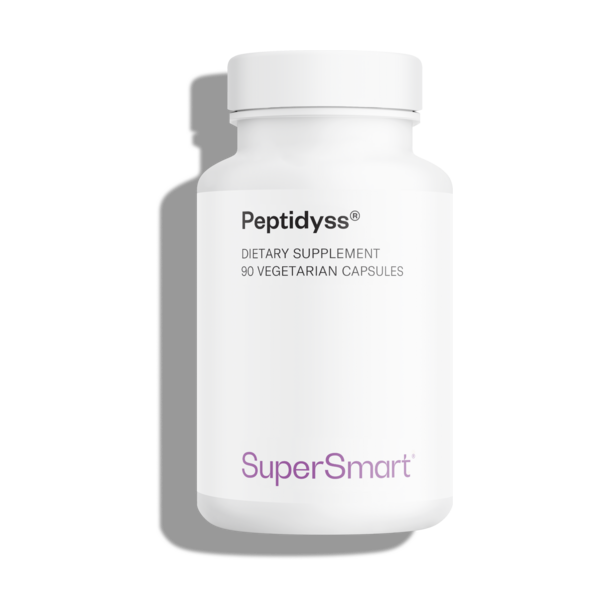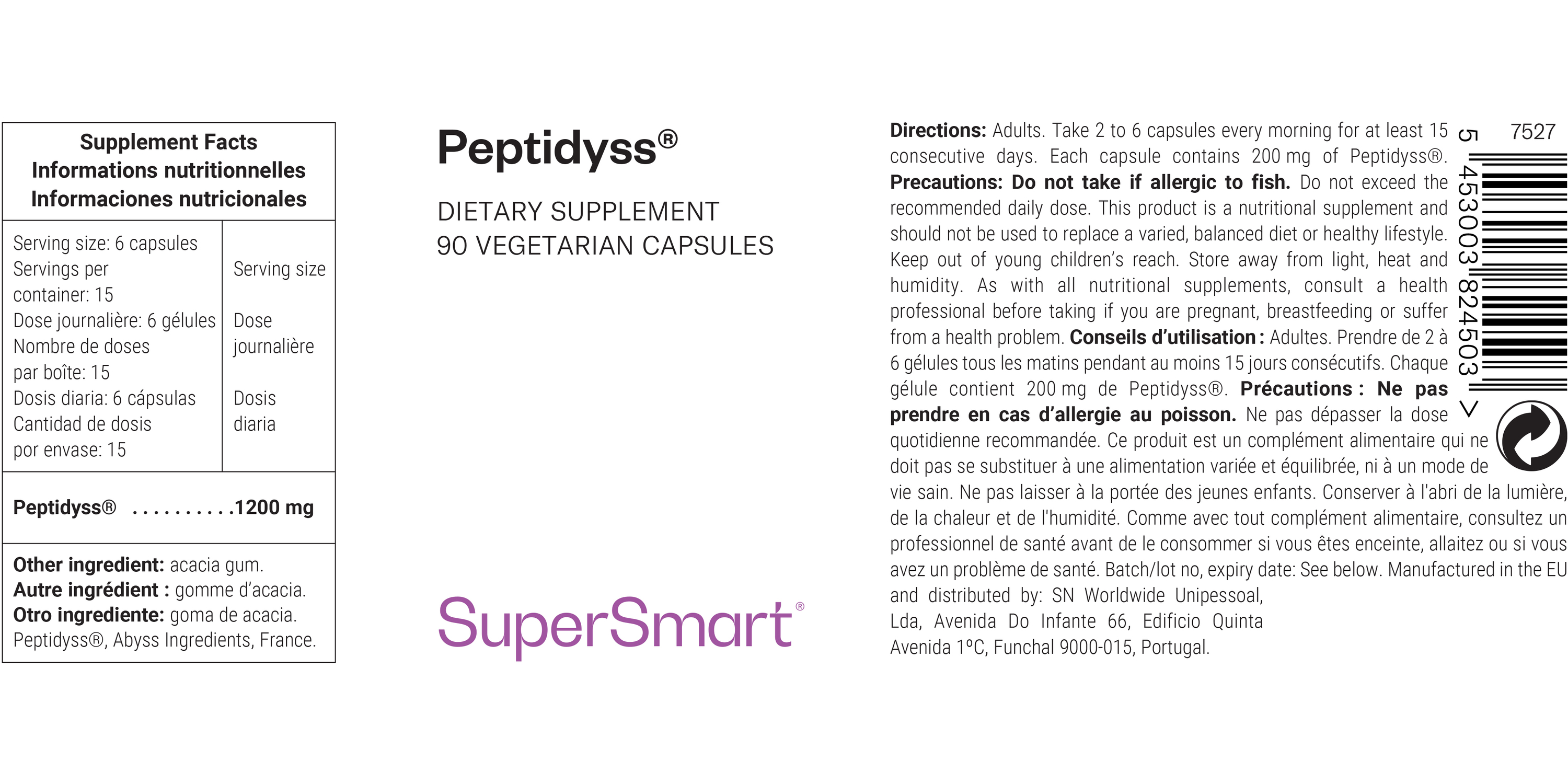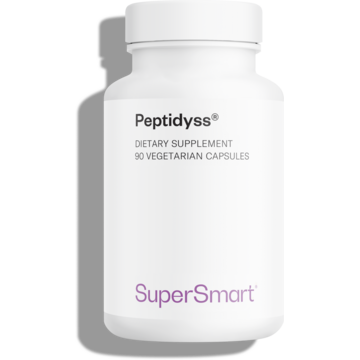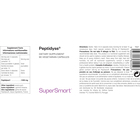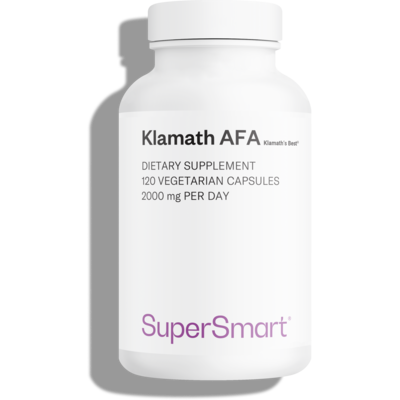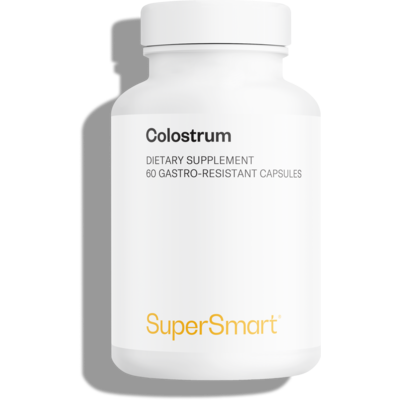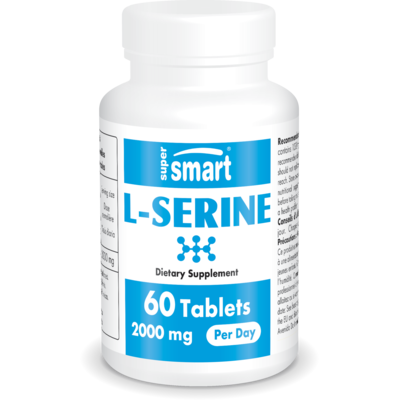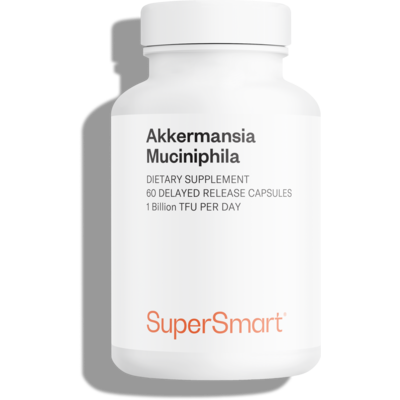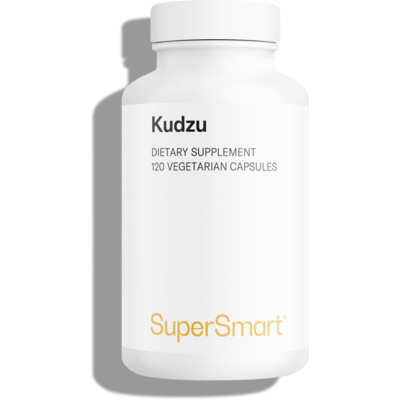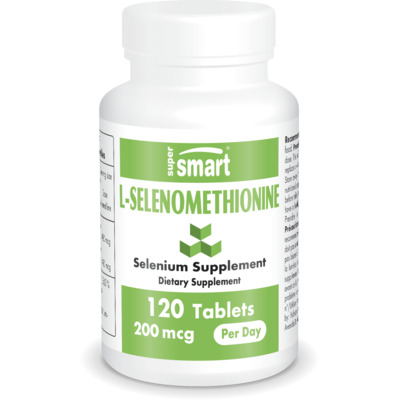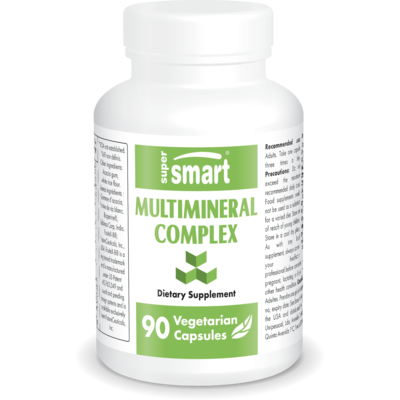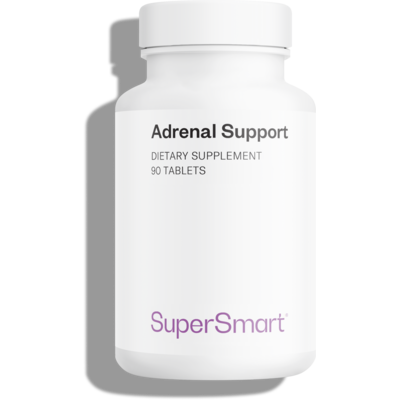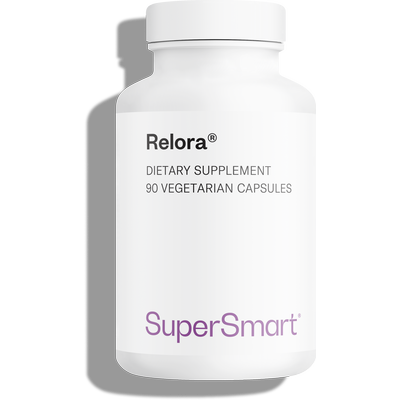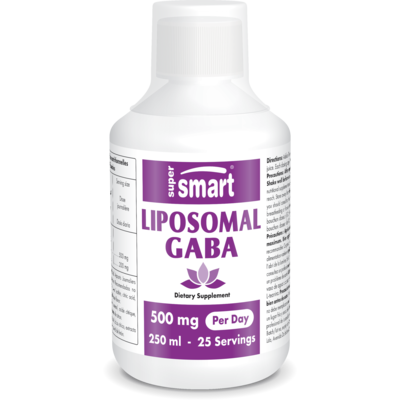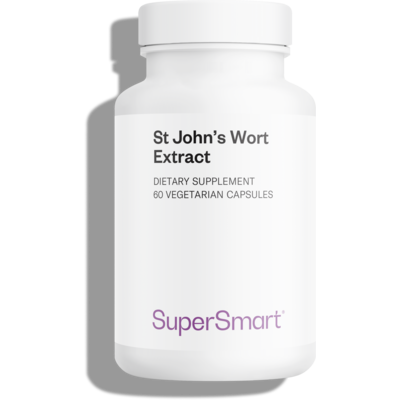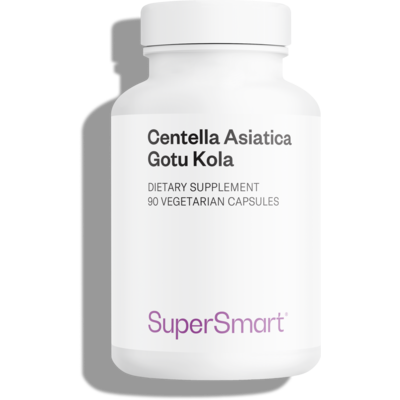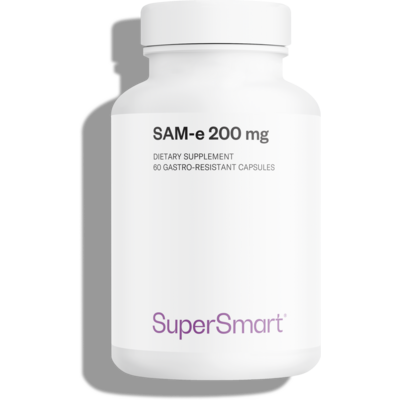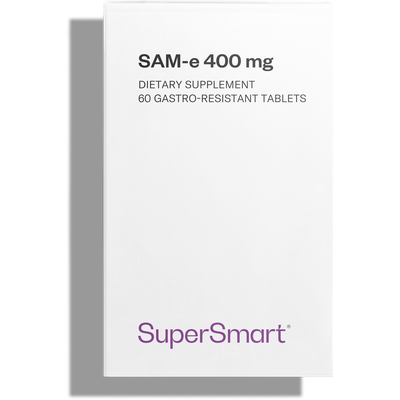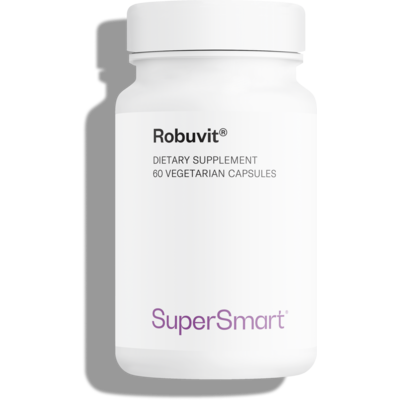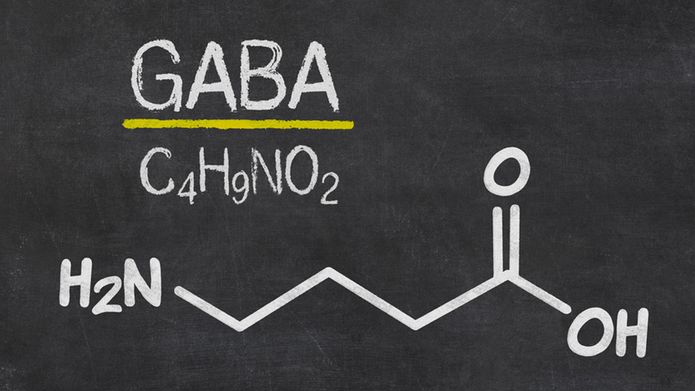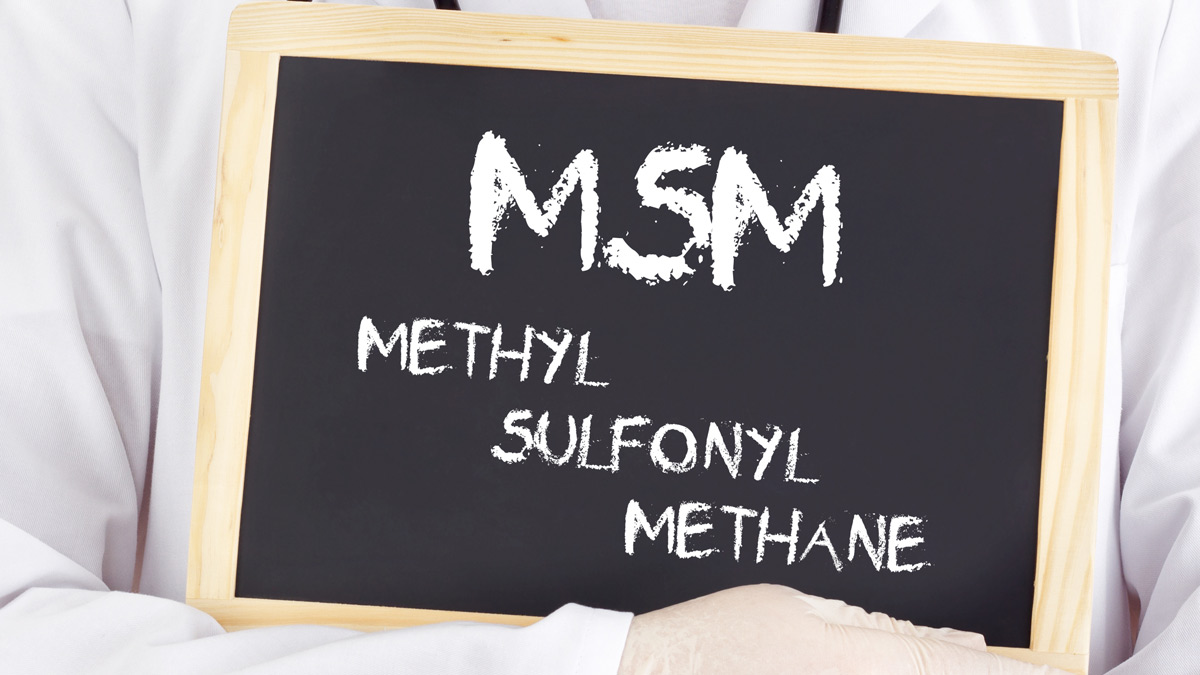Create Your Offer
The anti-stress supplement Peptidyss® is a fish protein hydrolysate obtained from deep ocean fish using a cutting-edge enzymatic process.
Made up of 18 amino acids with a molecular weight of less than 1,000 daltons, its peptides act as precursors to regulatory neuropeptides and neurotransmitters of the nervous system, including endorphins, serotonin and melatonin. These play a major role in mood and stress management. Its compounds have also been shown to modulate the concentration of GABA, a neurotransmitter that inhibits excitatory nerve signals emitted, in particular, in situations of anxiety or strong emotion.
How does Peptidyss® fish protein hydrolysate work in the body?
With its innovative formulation, Peptidyss® acts at various levels of the nervous system.
First of all, it influences levels of gamma aminobutyric acid (GABA). Discovered by Eugene Roberts and Sam Frankel in the 1950s, this inhibitory neurotransmitter acts to slow down nerve cell activity by binding to specific receptors (called GABAA and GABAB). Highly-abundant in cerebral cortex neurons, it governs behaviour and emotional stability, which appears tested in the event of anger, irritability or aggression (1). It thus counterbalances the excitatory potential of glutamate – from which it is nonetheless made (2).
At the same time, the peptides in Peptidyss® act as a precursor to several chemical mediators intrinsically linked to well-being:
- endorphins: produced by the hypothalamus and pituitary gland, these neuropeptides play a key role in modulating the body's response to pain and stress. The best-known of these, beta-endorphin, alters perception of pain and stress (3-4) ;
- serotonin: known as the ‘happy hormone ’, this important neuromediator governs self-control and inhibition (5) ;
- melatonin: synchronised with the day-night cycle, this neurohormone regulates the body’s internal clock. Released by the pineal gland at particular times, its production increases at bedtime, peaking during the night (6).
It’s worth mentioning that, unlike certain allopathic tranquillisers, fish protein hydrolysates do not cause drowsiness or a lack of alertness.
A fish peptide supplement with proven efficacy
The supplement Peptidyss® has been the subject of various scientific publications to support its mode of action:
- adaptability to stress. In a study on rats, the effects of a standard anxiolytic were compared with those of hydrolysed fish proteins, both at rest and in a situation of acute stress. Levels of adrenaline, noradrenaline, ACTH (adrenocorticotropic hormone) and GABA in the hypothalamus and hippocampus were all measured (7);
- cognitive abilities. Other studies have also looked at the impact of fish protein hydrolysates on cognitive function (learning, memorisation, concentration (8).
WARNINGS
Do not exceed the recommended daily dose. This product is a nutritional supplement and should not be used as a substitute for a varied and balanced diet or a healthy lifestyle.
STORAGE
Store in a cool, dry place away from direct sunlight, heat, and humidity. Keep out of reach of children.
PREGNANCY AND MEDICAL CONDITIONS
If you are pregnant, breastfeeding, or have any medical conditions, consult your healthcare provider before using this product.
SUPPLEMENT INTERACTIONS
Consult your healthcare provider before use, especially if you are taking any medications or other supplements as there may be potential interactions.
may 27 2021
Helps with mood and energy, I bought a bunch when the price dropped temporarily so I was able to take the full daily recommended dose for a few weeks. It's expensive at 15 daily services per bottle.
Need Help?
You May Also Like

